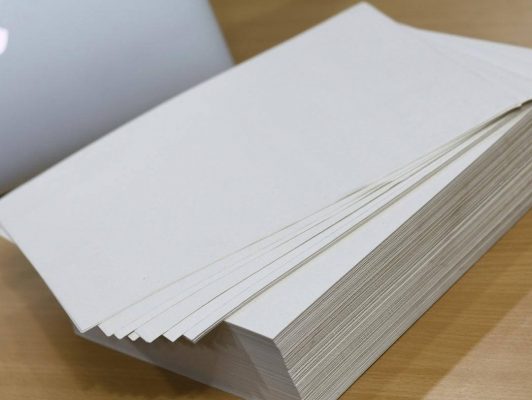
As we delve into the world of printing, one of the most frequently asked questions is, how much does printing paper weigh? This question, while seemingly simple, is actually quite complex due to the various factors that influence the weight of printing paper. This article aims to provide an in-depth understanding of the subject, shedding light on the nuances of paper weight and its impact on the quality of print.
The weight of printing paper is typically measured in pounds (lbs) or grams per square meter (gsm). This measurement refers to the weight of a ream, or 500 sheets of paper, in its basic size. However, the basic size varies depending on the type of paper, making the weight measurement a bit more complicated than it initially appears.
For instance, the basic size for bond paper (commonly used for letterheads and stationary) is 17 x 22 inches, while for cover stock (used for covers of books and brochures), it’s 20 x 26 inches. Therefore, a sheet of bond paper and a sheet of cover stock both weighing 20 lbs will not have the same thickness or feel, because they are not the same size.
The weight of the paper can significantly impact the quality of the print. Heavier papers tend to be more durable and less transparent, making them ideal for double-sided printing. They also provide a more professional feel, which is why they are often used for business cards, brochures, and other marketing materials.
On the other hand, lighter papers are more cost-effective and easier to fold, making them suitable for everyday use in offices and schools. However, they may not provide the same level of quality and durability as their heavier counterparts.
It’s also worth noting that the weight of the paper can affect the performance of the printer. Heavier papers require more ink and take longer to dry, which can lead to smudging if not handled properly. They may also cause more wear and tear on the printer, leading to increased maintenance costs.
In conclusion, the question how much does printing paper weigh? is not as straightforward as it seems. The weight of the paper is influenced by its basic size and type, and it can significantly impact the quality of the print and the performance of the printer. Therefore, it’s essential to consider the weight of the paper when choosing printing materials for different purposes.

